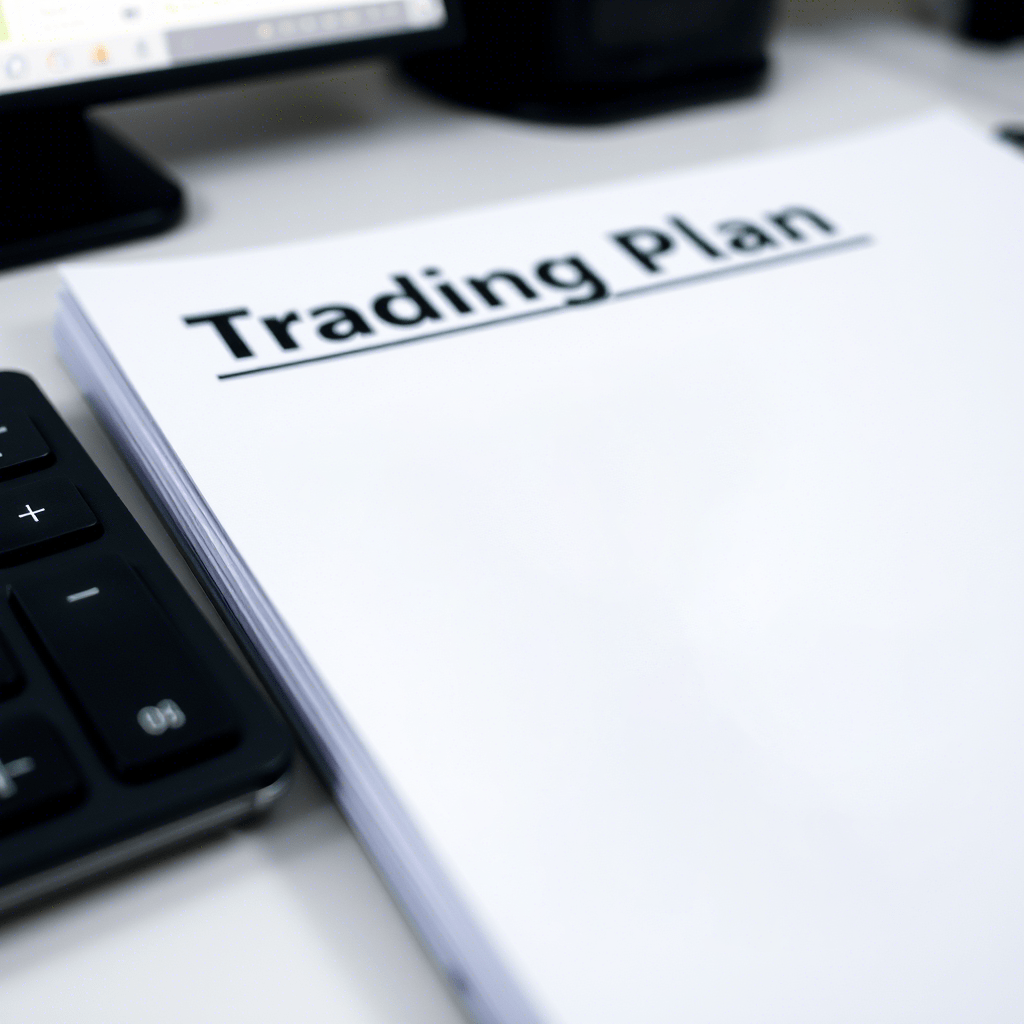How to Stay Disciplined in Trading: The Key to Consistent Success
Table of Contents
ToggleTrading is not just about charts, strategies, or market analysis—it’s also a mental game. One of the biggest challenges traders face is maintaining discipline. Without it, even the best strategies can fall apart. So, how do you stay disciplined in trading? In this comprehensive guide, we’ll explore actionable tips, mindset shifts, and practical tools that will help you build consistency, avoid emotional pitfalls, and achieve long-term success in the markets.
Whether you’re a beginner looking to establish good habits or an experienced trader seeking to refine your approach, this post will provide valuable insights to help you master the art of discipline. And if you’re ready to take your trading to the next level, R2F Trading offers personalized coaching services designed to help you implement these principles effectively.
Why Discipline Is the Backbone of Trading
Discipline is what separates professional traders from amateurs. It’s the ability to stick to your trading plan, manage risk, and control emotions—regardless of market conditions. Many traders enter the market with high hopes, only to abandon their strategies when emotions like fear or greed take over.
The truth is, trading isn’t about making money on every trade; it’s about executing your plan consistently and letting probabilities work in your favor over time. Without discipline, you risk falling into common traps such as overtrading, revenge trading, or deviating from your strategy during volatile periods.
At R2F Trading, we emphasize the importance of discipline as one of the core pillars of successful trading. Our coaching programs are designed to help traders develop the mental resilience and structured approach needed to thrive in the markets.
The Cost of Lack of Discipline in Trading
Before diving into how to stay disciplined, let’s first examine the consequences of failing to do so. Understanding these risks can serve as motivation to prioritize discipline in your trading journey.
1. Overtrading
Overtrading occurs when you make excessive trades without proper analysis or justification. This often stems from boredom, fear of missing out (FOMO), or the desire to recover losses quickly. Overtrading increases transaction costs, exposes you to unnecessary risks, and dilutes your focus on high-probability setups.
2. Revenge Trading
Revenge trading happens when you experience a losing trade and immediately jump back into the market to “get even.” This behavior is driven by emotion rather than logic and often leads to a cascade of poor decisions. Instead of accepting the loss as part of the process, revenge traders compound their mistakes, resulting in even bigger drawdowns.
3. Ignoring Risk Management
Discipline ensures that you adhere to proper risk management principles, such as setting stop-loss orders and position sizing. When discipline falters, traders may ignore these safeguards, risking more capital than they can afford to lose. This can lead to catastrophic losses that wipe out accounts.
4. Emotional Burnout
Lack of discipline creates a cycle of stress, frustration, and inconsistency. Traders who fail to maintain discipline often experience emotional burnout, which can cause them to quit trading altogether. Building discipline helps break this cycle and fosters a healthier relationship with the markets.
How to Stay Disciplined in Trading: Proven Strategies
Now that we’ve explored why discipline is critical and the dangers of neglecting it, let’s dive into actionable strategies to help you cultivate and maintain discipline in your trading.
1. Develop a Clear Trading Plan
A trading plan is your roadmap to success. It outlines your goals, strategies, risk tolerance, and criteria for entering and exiting trades. Without a plan, you’re essentially gambling rather than trading.
Key Elements of a Trading Plan
- Entry Rules: Define the conditions under which you’ll enter a trade (e.g., specific patterns, indicators, or price levels).
- Exit Rules: Specify where you’ll take profits and cut losses.
- Risk Management: Determine how much capital you’re willing to risk per trade (typically 1-2% of your account balance).
- Time Commitment: Decide how much time you’ll dedicate to trading each day or week.
At R2F Trading, we work closely with our clients to create customized trading plans tailored to their individual goals and risk profiles. A well-defined plan eliminates guesswork and provides clarity, making it easier to stay disciplined.
2. Stick to Your Rules No Matter What
Once you’ve created a trading plan, the next step is to follow it consistently—even when emotions run high. This is where many traders struggle. Here are some tips to help you stay committed:
- Pre-Trade Checklist: Before placing a trade, review your checklist to ensure all conditions are met.
- Avoid Impulse Trades: If a setup doesn’t align with your plan, resist the urge to jump in.
- Track Your Performance: Keep a trading journal to monitor adherence to your rules and identify areas for improvement.
Consistency builds confidence. By sticking to your rules, you reinforce positive habits and reduce the likelihood of impulsive decisions.
3. Practice Patience and Delayed Gratification
Successful trading requires patience. Markets don’t move according to your schedule, and opportunities may not arise every day. Learning to wait for high-probability setups is a hallmark of disciplined traders.
Tips for Cultivating Patience
- Focus on Quality Over Quantity: Aim for fewer, higher-quality trades rather than frequent, low-confidence ones.
- Use Downtime Wisely: Spend non-trading hours reviewing past trades, studying new strategies, or practicing mindfulness techniques.
- Celebrate Small Wins: Acknowledge incremental progress to stay motivated during slow periods.
Patience pays off in the long run. By resisting the temptation to force trades, you increase your chances of success.
4. Manage Your Emotions Effectively
Emotions are the enemy of discipline. Fear, greed, and frustration can cloud your judgment and lead to poor decisions. Developing emotional intelligence is essential for staying disciplined.
Techniques for Emotional Control
- Mindfulness Meditation: Practicing mindfulness can help you stay calm and focused during stressful situations.
- Breathing Exercises: Deep breathing reduces anxiety and promotes clarity of thought.
- Journaling: Write down your thoughts and feelings after each trading session to process emotions constructively.
At R2F Trading, we teach traders how to recognize and manage their emotions through proven psychological techniques. Mastering your mindset is just as important as mastering technical analysis.
5. Leverage Technology and Tools
Modern technology offers numerous tools to support disciplined trading. Automating certain aspects of your workflow can reduce the burden of decision-making and minimize human error.
Useful Tools for Discipline
- Alert Systems: Set up alerts for key price levels or indicators to avoid constantly monitoring the markets.
- Position Sizing Calculators: Ensure you’re risking the right amount on each trade.
- Trade Execution Platforms: Use platforms with built-in risk management features, such as automatic stop-loss placement.
By integrating technology into your routine, you can streamline your processes and stay aligned with your trading plan.
6. Surround Yourself with Accountability
Accountability is a powerful motivator. Sharing your goals and progress with others can help you stay on track and hold yourself accountable.
Ways to Build Accountability
- Join a Trading Community: Engage with like-minded individuals who share your commitment to discipline.
- Work with a Coach: A professional coach can provide guidance, feedback, and encouragement.
- Set Milestones: Break down your goals into smaller, measurable objectives and celebrate achievements along the way.
At R2F Trading, our coaching programs include regular check-ins and personalized feedback to keep you accountable and motivated.
Common Pitfalls to Avoid
Even the most disciplined traders can slip up occasionally. Being aware of common pitfalls can help you steer clear of them.
1. Chasing Losses
Trying to recover losses quickly often leads to reckless behavior. Stick to your plan and trust the process.
2. Neglecting Self-Care
Burnout affects both your physical and mental health. Prioritize sleep, exercise, and relaxation to maintain peak performance.
3. Overcomplicating Strategies
Simplicity is key. Avoid overloading your charts with too many indicators or switching strategies frequently.
Final Thoughts: Discipline as a Lifelong Journey
Staying disciplined in trading is not a one-time achievement—it’s an ongoing practice. By developing a solid trading plan, managing your emotions, leveraging technology, and surrounding yourself with accountability, you can build the discipline needed to succeed in the markets.
Private Coaching
If you’re ready to take your trading skills to the next level and really want to answer the question “is ICT worth it”, book your free discovery session with me today! We’ll discuss your goals, assess your current trading strategy, and create a personalized plan to align you with the edge of trading like smart money.

